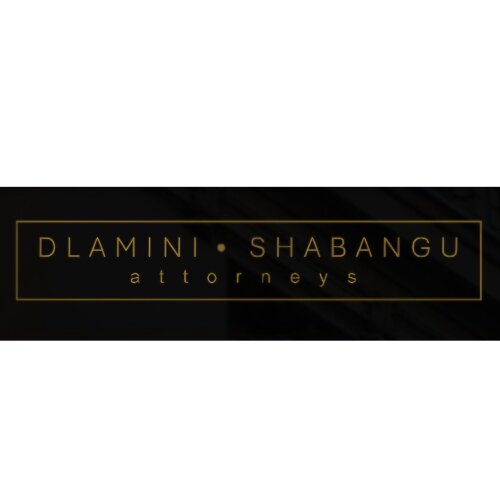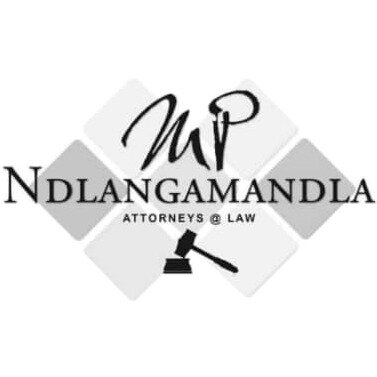Best Mining Law Lawyers in Eswatini
Share your needs with us, get contacted by law firms.
Free. Takes 2 min.
Or refine your search by selecting a city:
List of the best lawyers in Eswatini
About Mining Law in Eswatini
Mining Law in Eswatini governs the exploration, extraction, processing, and sale of mineral resources within the country. It establishes the legal framework for the acquisition of mining rights, obligations for environmental protection, land use, community engagement, and fiscal responsibilities such as royalties and taxes. The primary legislation includes the Mines and Minerals Act and related environmental and safety regulations. Both local and foreign entities must comply with these laws to operate within Eswatini’s mining sector, which covers minerals such as coal, diamonds, gold, and quarry materials.
Why You May Need a Lawyer
Engaging with Mining Law in Eswatini can involve complex legal and regulatory requirements. You may require a lawyer if you:
- Intend to apply for, buy, or transfer a mining license or permit.
- Need to negotiate land access or resolve disputes over land rights with communities or landowners.
- Face contractual issues with business partners or suppliers within mining operations.
- Encounter environmental compliance issues or receive notices from regulatory authorities.
- Seek to understand your tax and royalty obligations.
- Face investigations or sanctions for alleged violations of mining laws.
- Require representation in litigation or arbitration arising from mining operations.
A lawyer knowledgeable in Eswatini’s Mining Law can help protect your interests, ensure regulatory compliance, and minimize legal risks.
Local Laws Overview
Mining activities in Eswatini are principally regulated by the Mines and Minerals Act of 2011 along with related regulations on safety, environmental protection, and labor. Key aspects include:
- Licensing: All prospecting, exploration, and mining activities require a government-issued license or permit. Different licenses exist for different stages and types of mining.
- Land Rights: Traditional and private land ownership and customary land use rights are respected. Written agreements may be needed with chiefs or landowners.
- Environmental Protection: Environmental impact assessments (EIAs) are typically required before mining projects commence. Ongoing monitoring and rehabilitation obligations apply.
- Taxation and Royalties: Operators must pay royalties to the government based on production and may also be subject to additional taxes or local levies.
- Local Content: Some laws encourage the hiring of local staff and use of local suppliers to support community development.
- Foreign Investment: There are specific requirements and restrictions for foreign entities wishing to invest in Eswatini’s mining sector.
- Health and Safety: Mining operations must adhere to occupational health and safety standards to protect workers and local communities.
Frequently Asked Questions
What minerals can be mined in Eswatini?
Eswatini has deposits of coal, diamonds, gold, clay, kaolin, crushed stone, and quarry materials, among others. The government may also license exploration for new minerals.
Who can apply for a mining license in Eswatini?
Both individuals and companies, including foreign entities, can apply for mining licenses provided they meet all legal and financial requirements and adhere to local land use laws.
What is the process for obtaining a mining license?
Applicants usually submit a formal application to the Ministry of Natural Resources and Energy, provide supporting documentation, conduct environmental impact assessments where necessary, and pay required fees. Approvals may involve consultations with relevant authorities and local chiefs.
How long does a mining license last?
Duration depends on the type of license. Exploration licenses are usually granted for shorter periods, often two to three years, while mining leases can last five years or more and may be renewable.
Are there restrictions on foreign ownership in mining?
Foreign entities can participate in mining but may face additional requirements such as incorporation within Eswatini, local partnerships, or obtaining special government approvals.
What happens if I mine without the proper license?
Operating without a valid license is illegal and can result in penalties, fines, closure of operations, confiscation of minerals, or even imprisonment.
What environmental obligations do miners have?
Miners must conduct environmental impact assessments before starting operations, comply with ongoing environmental protection standards, and rehabilitate sites upon closure.
How are royalties and taxes calculated?
Royalties are generally calculated as a percentage of the volume or value of minerals produced. Additional corporate income tax and other levies may apply depending on the scale of operations.
How are land rights and community interests protected?
Mining projects must secure land access rights through negotiation or compensation, uphold customary practices, and, in some cases, obtain community consent especially on Swazi Nation Land.
What should I do if I have a dispute related to mining?
Disputes may be resolved through negotiation, mediation, or, if required, through the courts or arbitration. A specialized mining lawyer can assist with dispute resolution procedures.
Additional Resources
Several organizations and government bodies in Eswatini can provide further information or assistance regarding Mining Law:
- Ministry of Natural Resources and Energy - Responsible for issuing mining licenses and overseeing mining regulation.
- Eswatini Environmental Authority - Advises on environmental regulations and the environmental impact assessment process.
- Eswatini Chamber of Mines - Represents mining companies and facilitates industry engagement.
- Local Chiefs and Community Councils - Important for obtaining land access and understanding local community interests.
- Registered law firms specializing in Mining Law - These can provide legal representation and expert advice for mining ventures.
Next Steps
If you require legal assistance related to Mining Law in Eswatini, consider the following steps:
- Collect all relevant documents, such as existing licenses, maps, business registration papers, and correspondence with authorities or landholders.
- List your questions and objectives clearly to communicate your needs to a legal professional.
- Consult with a lawyer specialized in Mining Law and local regulations, especially one familiar with Eswatini’s unique legal landscape.
- Engage early with relevant government offices, community leaders, or industry associations to ensure proper compliance.
- Follow up on legal advice and keep updated on regulatory developments that may impact your mining interests.
Taking these proactive steps will help safeguard your operations, foster positive community and government relations, and ensure compliance with Eswatini’s Mining Law.
Lawzana helps you find the best lawyers and law firms in Eswatini through a curated and pre-screened list of qualified legal professionals. Our platform offers rankings and detailed profiles of attorneys and law firms, allowing you to compare based on practice areas, including Mining Law, experience, and client feedback.
Each profile includes a description of the firm's areas of practice, client reviews, team members and partners, year of establishment, spoken languages, office locations, contact information, social media presence, and any published articles or resources. Most firms on our platform speak English and are experienced in both local and international legal matters.
Get a quote from top-rated law firms in Eswatini — quickly, securely, and without unnecessary hassle.
Disclaimer:
The information provided on this page is for general informational purposes only and does not constitute legal advice. While we strive to ensure the accuracy and relevance of the content, legal information may change over time, and interpretations of the law can vary. You should always consult with a qualified legal professional for advice specific to your situation.
We disclaim all liability for actions taken or not taken based on the content of this page. If you believe any information is incorrect or outdated, please contact us, and we will review and update it where appropriate.
Browse mining law law firms by city in Eswatini
Refine your search by selecting a city.












